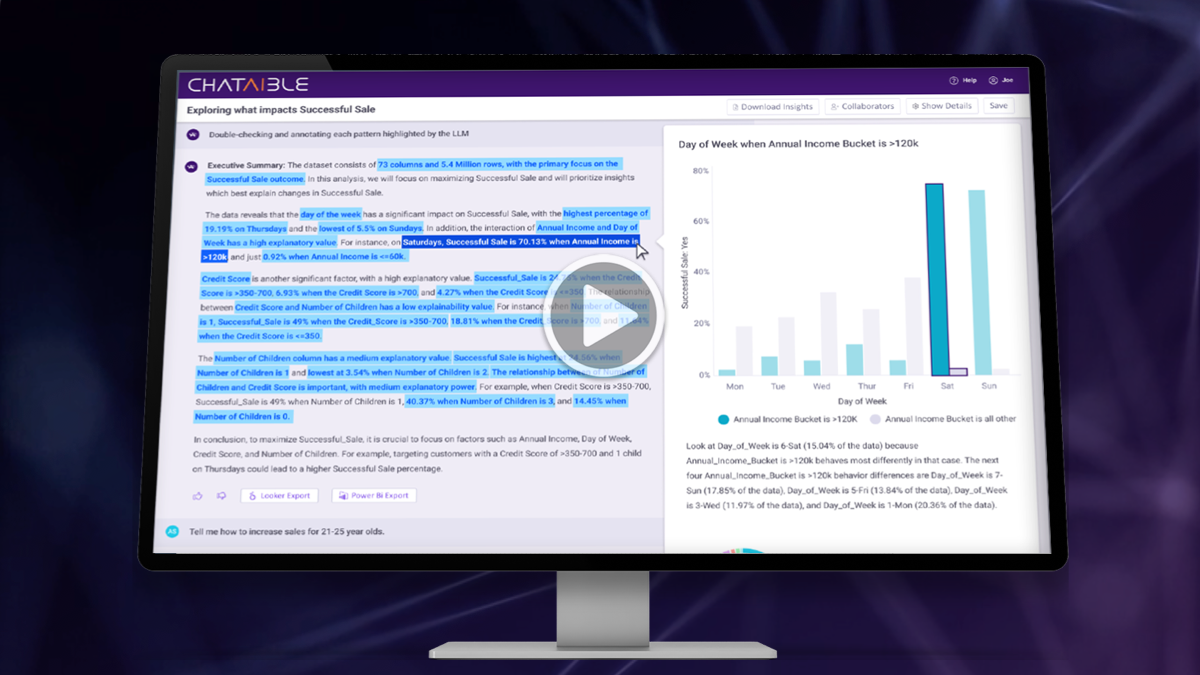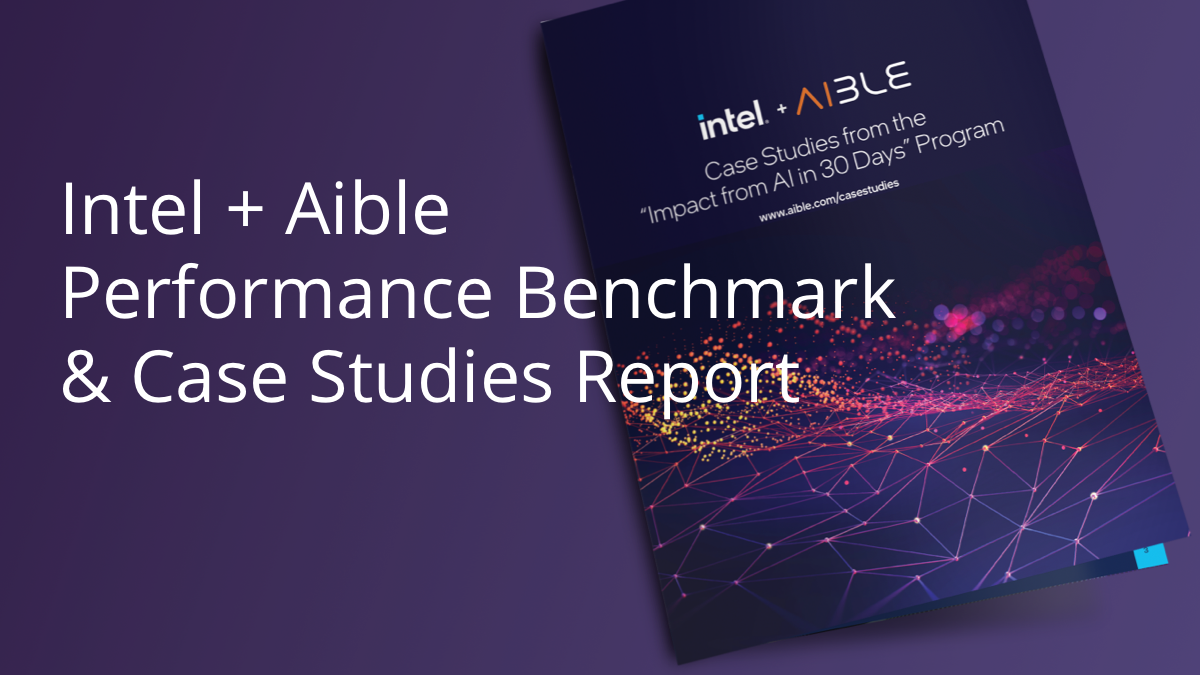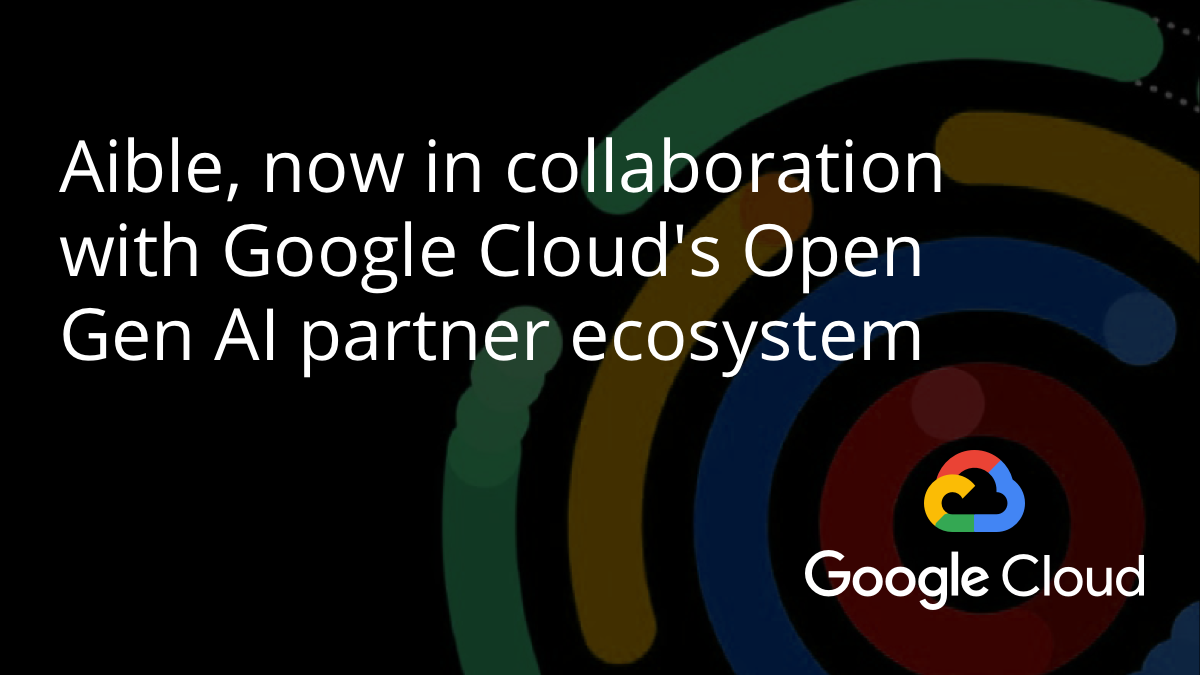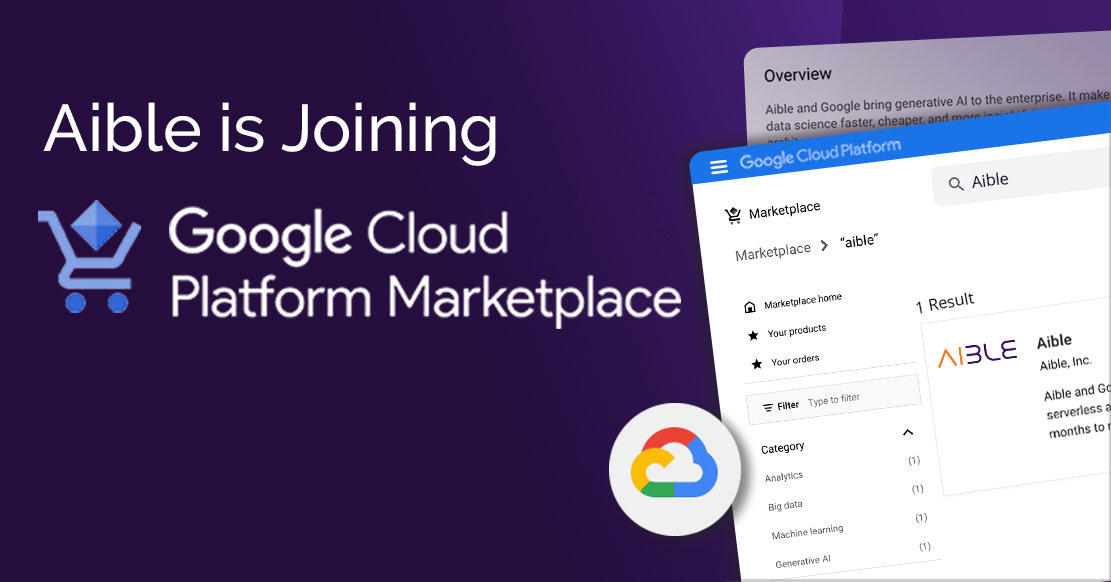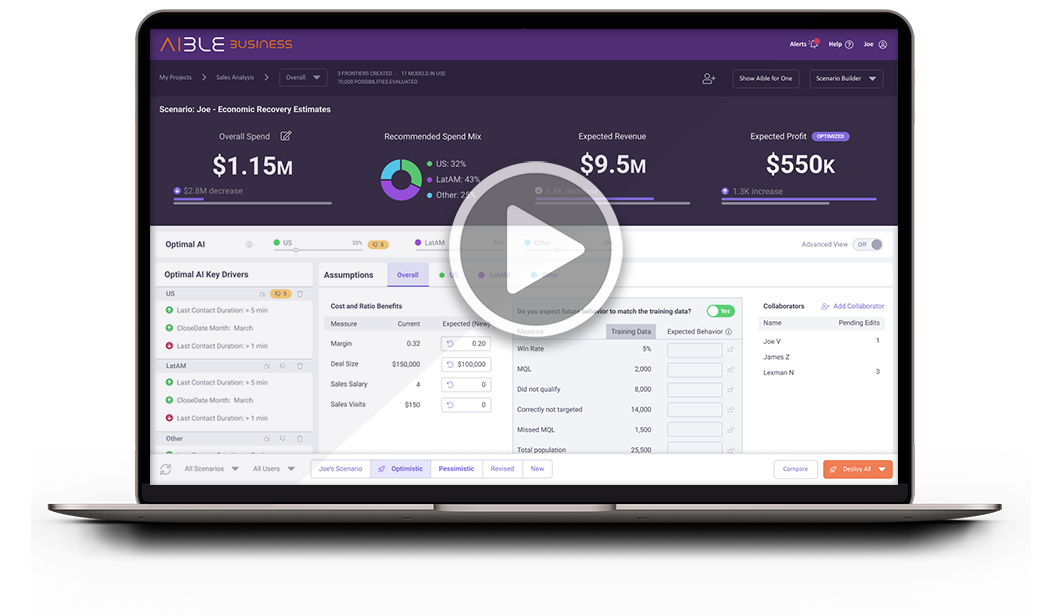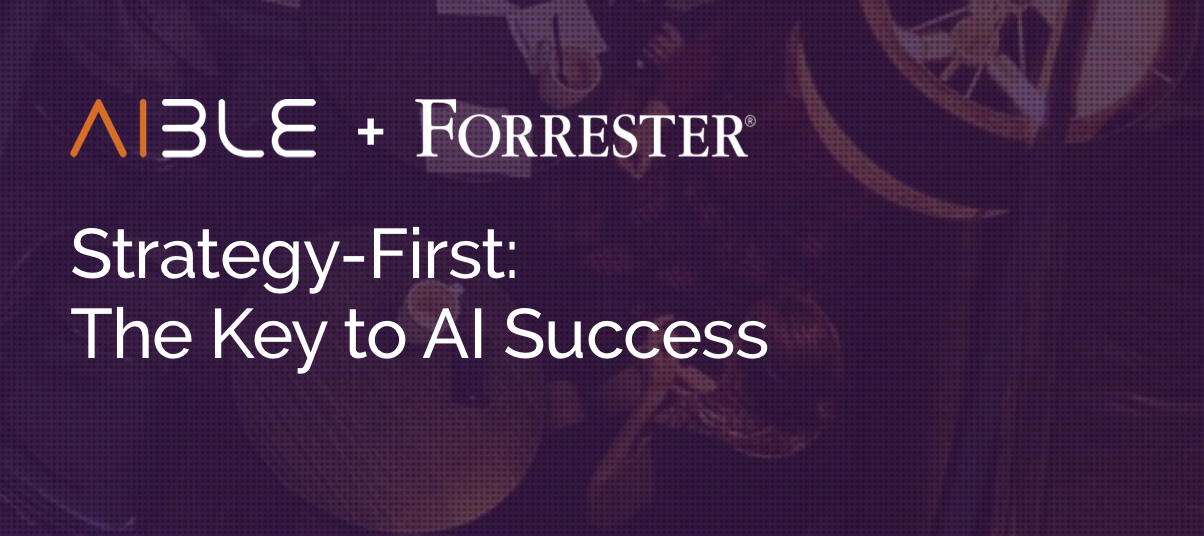
Like a Well-Oiled Machine
Challenges in Supply Chain Optimization
According to the Institute of Supply Management, manufacturers are facing “record-long lead times, wide-scale shortages of critical basic materials, rising commodities prices and difficulties in transporting products across industries.” The effects of Covid-19 on supply chains continue to be long and deep, even as economies have opened. Increased demand is posing unique challenges, as inventories and production must be ramped up quickly.
High-Impact Supply Chain Use Cases
Optimize Inventory Expedites
Increase Employee Retention
Stockout
Prevention




Optimize Inventory Expedites
With supply chain conditions constantly changing, you need to quickly figure out when to expedite inventory shipments to match demand spikes and balance carrying costs vs. revenue opportunities. Aible enables manufacturers to balance costs to minimize risk and expense and allocate inventory budgets optimally across materials and locations.

Increase Employee Retention
Left unchecked, employee attrition can be harmful for your supply chain planning and manufacturing, resulting in costly delays. AI from Aible helps organizations anticipate employees who are at greatest risk of churning in order to take proactive intervention, as well as identify top candidates to recruit or retain based upon past outcomes and ideal characteristics.

Stockout Prevention
Consumer demand continues to fluctuate, and warehouse space is increasingly becoming a constraint as companies stock up to get ahead of potential inflation. Aible helps manufacturers minimize lost sales by proactively identifying and prioritizing critical inventory at risk of stocking out in order to avoid the shortages that matter most and optimally allocate limited inventory space and budgets across materials and locations.
Empower Everyone In Your Supply Chain
-
Business Teams
Aible helps all business functions from marketing, to sales, human resources and finance optimally improve lead scoring, reduce churn, and enhance employee retention and recruitment activities.
-
Production Plants
Aible helps production plants identify potential parts shortages, improve shift performance while reducing overtime expenses, optimize quality inspections to reduce costs, prioritize maintenance efforts, and reduce unnecessary servicing.
-
Distribution Centers
Aible helps distribution centers manage inventory expedites by deciding when to expedite inventory shipments to match demand spikes in order to balance carrying costs vs revenue opportunities.
-
Stores
Aible helps stores reduce avoidable returns by proactively engaging customers that have a higher likelihood to return purchased items and minimize lost sales by identifying potential stockouts before they become a problem.
Optimize Your Entire Supply Chain
Supply chains face myriad challenges ranging from inventory expedites, employee retention and recruitment to late payments, inventory stockouts, shift performance, and overtime. Manufacturers are already applying AI to optimize every aspect of their supply chain, from the production floor and warehouse to stores. Here’s how Aible can help with your critical supply chain use cases:
High Value AI Use Cases
Telecommunications
Retail
Higher Education
Healthcare
Banking
Insurance
Government







High Value Use Cases for Telecommunications
The telco industry continues to experience rapid change as consumer behavior shifts towards telecommuting, and the 5G rollout promises to open new opportunities. Aible helps telco companies reduce customer churn by targeting customers with the right tactics to maximize lifetime value at the lowest possible cost, while also optimizing leads across different product lines and sales groups. Aible also helps call centers increase customer satisfaction by proactively routing calls to the best available service group based on lifetime value and the complexity of the service call.
High Value Use Cases for Retail
The retail industry continues to be under tremendous pressure from online competitors and a more demanding consumer base. Aible helps leading retail organizations optimize and personalize promotions to maximize cross-sell and up-sell opportunities, monitor and take action against inventory loss from fraud and employee error, decide when to expedite inventory to match demand spikes, and reduce avoidable returns. Aible also helps retail stores optimize inventory, logistics and staffing, and make better data-driven decisions that take into account the long-term value of customers and how to prioritize them.
High Value Use Cases for Higher Education
Artificial intelligence is rapidly being adopted by Higher Education to improve student and faculty outcomes and optimize institutional initiatives. Aible helps higher education institutions anticipate enrollment trends, optimize recruitment efforts, elevate academic performance, improve alumni donor outreach prioritization and more. With Aible, institutions can create segmented retention strategies for different sets of students and target them with highly personalized messages to retain them.
High Value Use Cases for Healthcare
The healthcare industry faces increased pressure to leverage technology to deliver better patient outcomes at lower costs. Aible helps leading healthcare organizations increase the quality of care, improve operational efficiency, and reduce fraud, resulting in increased revenue, reduced cost, mitigated risk, and better health outcomes. Aible enables providers to predict in advance patients likely to miss appointments and proactively contact them to improve healthcare and reduce clinician downtime as well as determine which members are likely to churn in order to target them with the optimal tactics.
High Value Use Cases for Banking
Banking leaders are already applying AI to win new business, evaluate creditworthiness, and reduce fraud, resulting in increased revenue, reduced cost, and mitigated risk. Aible helps banks reduce customer churn by gauging the risk of losing high-value customers and optimize sales by predicting the likelihood of a customer purchasing a given product, while optimizing the sales team’s resources. Aible also mitigates credit risk by identifying high-risk applicants to avoid unnecessary debt collection.
High Value Use Cases for Insurance
Leading insurance companies are already applying AI to predict how customer needs are evolving, improve claim management, and reduce fraud, resulting in increased revenue, reduced cost, and mitigated risk. Aible helps insurers optimize leads across different product lines and sales groups to maximize profits and determine which policies are likely to churn in order to increase retention. Aible also improves fraud detection by predicting which claims are likely to be fraudulent to optimize claim investigation resources and quickly process valid claims.
High Value Use Cases for Government
Governmental agencies are increasingly being asked to do more with less. The recovery from COVID places new demands, even as budgets tighten. Aible helps governmental agencies improve employee recruitment by identifying top candidates to pursue based on past outcomes and optimize employee retention by identifying employees at the greatest risk of churning in order to take early action. Aible also improves child and domestic welfare by identifying cases that are likely to require early intervention and mitigates unemployment fraud by proactively flagging fraudulent claim submissions.
Resources
3 High-Impact AI Use Cases for Higher Education
Higher Education Is Facing Unprecedented Challenges. In the last decade, the US has seen an enrollment decline rate of over 2 million students. Now in the wake of Covid, institutions are faced with a fresh set of problems around student enrollment, student and faculty retention, donor engagement, marketing spend optimization and more.
Today’s AI isn’t prepared for the messiness of reality
Most AI practitioners are training their models in sterile environments using cleaned data. But future, real-world data will always be imperfect.
Strategy-First: The Key to AI Success
Businesses often unwittingly deploy a set of tactics with their AI that’s in conflict with their overall strategic objectives.
